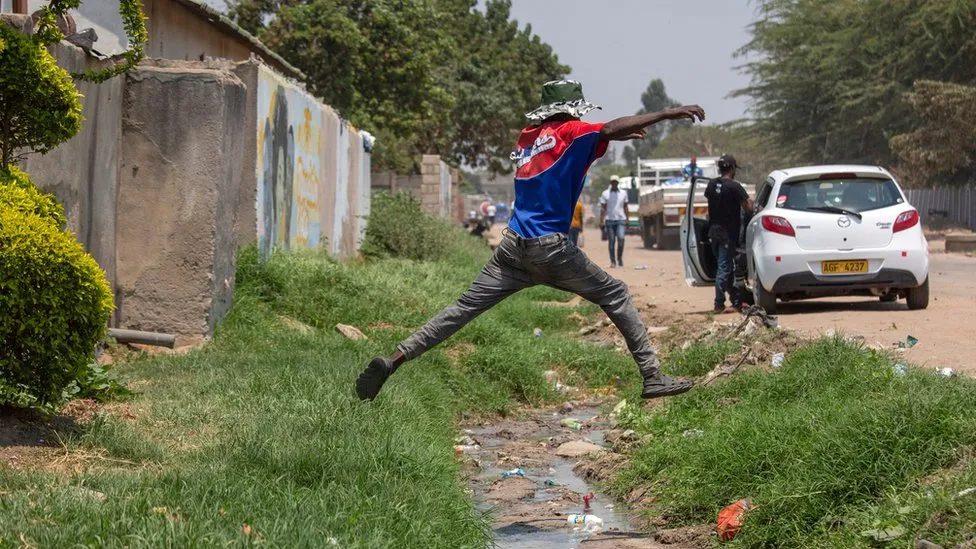An official state of emergency has been declared in Zimbabwe’s capital city, Harare, in an appalling recurrence of the devastating 2008 cholera outbreak. Dozens of people have died as a result of the outbreak, which is mainly focused in the densely populated suburb of Kuwadzana. Over 7,000 suspected cases have also been reported. The city’s authorities claim that the current help is insufficient to address the growing public health crisis and are frantically seeking assistance to stop the spread and provide safe water.
Resurgence of Cholera: Growing Public Health Crisis
An acute diarrheal infection brought on by Vibrio cholerae has returned, plunging Zimbabwe into a serious public health emergency. Mayor Ian Makone has declared a state of emergency due to the deadly combination of restricted access to clean water and the disease’s quick spread in the Kuwadzana suburb of Harare. Waterborne cholera is a disease that can be fatal, so it needs to be treated quickly and thoroughly to prevent more damage.
A Dark Reminder of Past Events
In a recent statement, Mayor Ian Makone drew upsetting comparisons between the present cholera outbreak and the disastrous events of 2008. More than 100,000 people became infected, and over 4,000 lives were lost during that time, which resulted in a catastrophic breakdown of essential services. Former president Robert Mugabe was ultimately forced by this crisis to sign a historic power-sharing deal with his political opponent, Morgan Tsvangirai. The hovering spirit of 2008 heightens the gravity of the current scenario.
Health Care System in Disaster

The International Federation of the Red Cross (IFRC) has highlighted that the vast majority of cholera cases in Zimbabwe are causing challenges for the country’s healthcare system. The difficulty is compounded by the lack of medical personnel and necessary supplies, which makes containment strategies ineffective. The IFRC emphasizes how urgently help from abroad is needed to stop this crisis from getting worse and overloading the already overburdened healthcare system.
Response of the Ministry of Health
The Ministry of Health reported 7,398 suspected cases as of Tuesday; of those, 50 confirmed deaths and 109 hospitalizations were recorded. The ministry is responding with a multifaceted strategy meant to tackle the crisis head-on. The seriousness of the situation is made apparent by actions like the removal of street food vendors, who have been identified as possible sources of contamination, and the scheduled delivery of clean water by trucks. The health minister’s trip to the epicenter emphasizes the necessity of acting swiftly and decisively.
Cholera’s Possible Cross-Border Impact
The outbreak of cholera in Zimbabwe has already impacted 45 out of 62 districts and all 10 provinces, according to the IFRC, which warns that the disease is spreading quickly across the country. Given the history of cholera outbreaks in neighboring countries like Malawi, South Africa, and Mozambique, there is a justifiable fear that the disease could spread across international borders. The interdependence of public health issues is highlighted by the call for the international community to work together to address the crisis and avert a regional health catastrophe.
The current cholera outbreak in Zimbabwe necessitates quick action and coordinated efforts to avoid the catastrophic events of 2008. The declaration of a state of emergency illustrates the urgency of the situation, and foreign assistance is essential to strengthening the nation’s healthcare system and halting the spread of this fatal illness. In order to prevent a humanitarian catastrophe, it is crucial that all countries work together to respond to this pressing issue.



